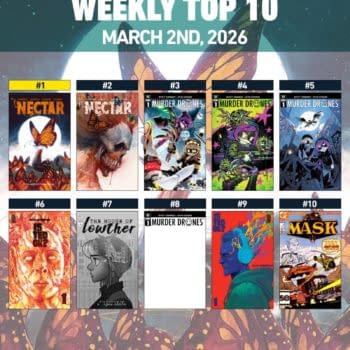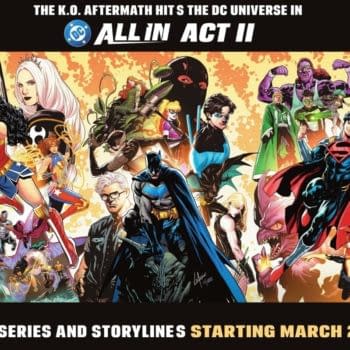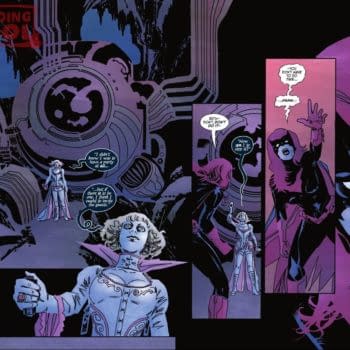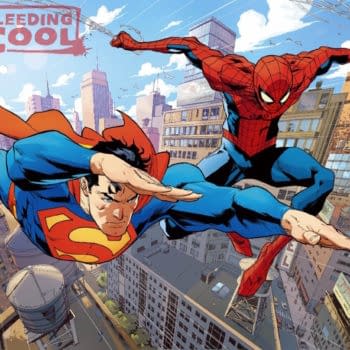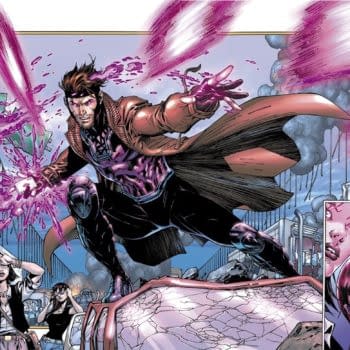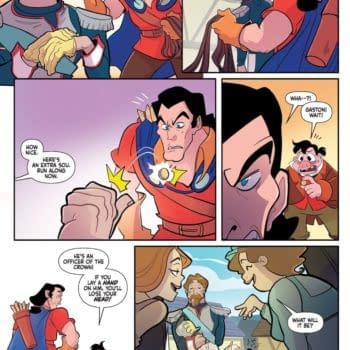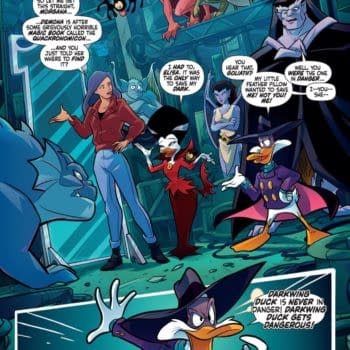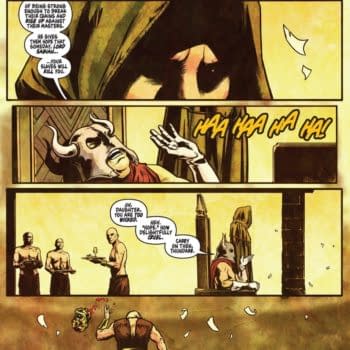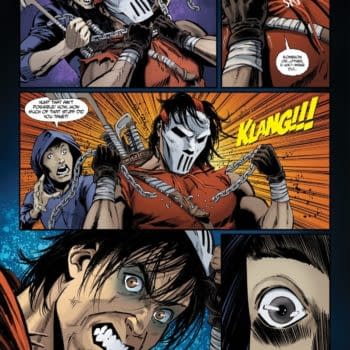Posted in: Comics | Tagged: 2012, comic con, harvey pekar, san diego, sdcc
Harvey Pekar – This Isn't The Comic Con My Parents Promised Me

The dream of just about any artist is to attain a solid measure of financial and artistic success and still retain their individuality and credibility.
Few in the comics industry have achieved that goal as thoroughly as Harvey Pekar.
Pekar wrote about his daily dealings with the people and events in his Cleveland, Ohio home and attracted some of the time's best underground artists to illustrate his ramblings. His life is recounted in the movie "American Splendor" and he often made appearances on David Letterman's "Late Night".
Artist J.T. Waldman presented a panel on Pekar's final book, "This Isn't The Israel My Parents Promised Me".
According to Waldman, he was first approached by Pekar to illustrate his history of the Middle East. Pekar felt that Waldman was in touch with his "Jewishness" and so was the perfect person to illustrate the story.
What struck me most about this panel, again, was the lack of people in attendance. OK, so maybe Harvey Pekar is a little more low profile than the guy who made the Batman movies happen but come on. The average age of the room is probably in the high 30s to low 40s.
I'm not sure if this fazed Waldman. He presented some slides detailing his work with Pekar, including some amusing screens of scripts with notes that Pekar would send him, the text packed into boxes and small drawings decorating the sides.
It's not clear, when studying Pekar's life, if he had any dreams at all. As Waldman reaffirms, Pekar's biggest goal in life was to make the rent. The fame he'd achieved just sort of… missed him entirely. Perhaps the creation of a new book was a case-by-case victory in itself? I don't think even his wife understood what her husband really wanted out of life. If she does, she keeps it to herself. Instead, she busies herself raising funds to erect a statue in Harvey's honor in his hometown of Cleveland.
In the end, it seems that it's Waldman's dreams that have been realized. It seems that Pekar's assignment to research his own "Jew stuff" reinvigorated Waldman's own process of realization. He speaks to the quarter-filled room about Harvey the way a nephew might talk about his beloved uncle. There definitely isn't a father and son type bond here.
The last part of the panel is basically plugs for the book being offered and the statue fund. It feels like I'm being huckstered but I let it go because Waldman does seem to genuinely miss Pekar in a very profound way.
I think people like Harvey Pekar come along very rarely. He was an artist without a bit of pretention about his work. He was a man who found whatever joy he could in his own misery but managed to keep it close to the vest. He earned the respect of his peers and the loyalty of a generation of fans without losing what made him special.
In a way, he did achieve a dream whether he wanted to or not. He was able to retain his soul and still earn a place among the medium's elite. Then, he died in the midst of a project. Still so many more stories to tell.
While the crowds in Hall H and Ballroom 20 scream their heads off at stuff we'll see on the Internet only moments later, I got to watch the last video interview with Harvey Pekar, watch a comics legend mid-wife the birth of his own creation and shook hands with the man who is responsible for saving Batman in the movies for generations to come.
Comic-Con is a place where people of all types can come and live their dreams with no fear of reproach, scorn or ridicule. Well, mostly. There is a faction of "geek" that has begun to invade the sanctum of Comic-Con in the form of "Twilight" and the hipster version, "Adventure Time". Casual geeks with short attention spans and even shorter knowledge of comic books or their history.
I see them in their fake glasses and "BAZINGA!" shirts scoff and point at the cosplayers and comics geeks I count as my brethren like they suddenly own the place. Maybe they do. Maybe this is the changing of the guard. As comics go digital, maybe so goes history itself.
When Comic-Con dies it will be with a "BAZINGA!"
What will rise from the ashes is anyone's guess.






